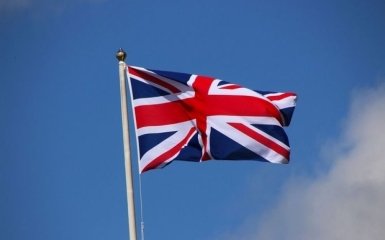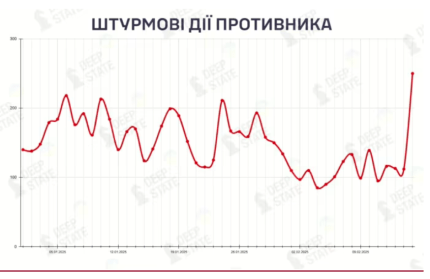Great Britain imposed sanctions against Russia's Radiological, Chemical and Biological Defense Forces and their leader, Igor Kyrylov, for using chemical weapons in the war against Ukraine.
Points of attention
- Great Britain imposed sanctions against Russian troops for the use of chemical weapons in the war against Ukraine.
- Russian troops have admitted to using chlorpicrin on the front, which violates the Chemical Weapons Convention.
- Britain promises to continue to apply sanctions against Putin's regime and to support Ukraine in the fight for international law.
- August witnessed more than 400 cases of hostile use of chemical munitions against the Ukrainian military.
- Russia grossly violates the rules of war and international obligations by using chemical substances prohibited for use in military conflicts.
Britain introduced sanctions against the Russian Armed Forces for the use of chemical weapons in the war
As noted by the British government, Russian forces have admitted to using chloropicrin, a toxic substance first used during the First World War, which is a violation of the Chemical Weapons Convention and international law.
British Foreign Minister David Lammy emphasized that London will not be inactive in response to such violations and will continue to apply sanctions against the Putin regime. According to him, Russia uses inhumane methods, and Britain will not allow it to avoid responsibility.
Defense Secretary John Healy emphasized that Great Britain will continue to support Ukraine and punish violations of international law, pledging annual aid to Ukraine in the amount of 3 billion pounds.
In addition, sanctions were imposed against two Russian laboratories involved in the development of chemical weapons.
In August, the Russian army used more than 400 chemical munitions against the armed forces
As noted, 447 cases of the use of chemical munitions by enemy forces against the Ukrainian military were recorded in August.
From February 15, 2023 to August 24 this year, 4,035 such cases were recorded.
The General Staff explains that chemical munitions are used simultaneously with conventional means of fire damage.
For chemical attacks, the enemy uses substances K-51 and RG-VO, which are prohibited for use in war, as they are means of fighting riots.
The General Staff also reports that a large part of the enemy's ammunition contains dangerous chemicals of an unknown type.
Thus, Russia grossly violates the rules of warfare, neglecting the norms and obligations of the Convention on the Prohibition of the Development, Production, Stockpiling and Use of Chemical Weapons and on Their Destruction.













